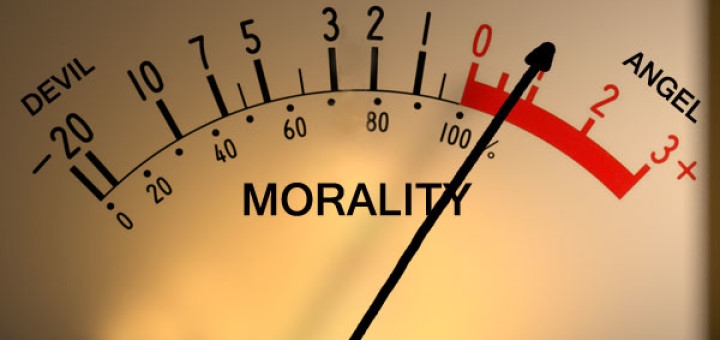Is Good Morality Good Enough?

I want to work for USAID, The United Nations, UNHCR, WHO, World Bank, UNICEF, UNESCO and the list goes on...
But why? Is it because it is good morality? "Aim above morality. Be not simply good, be good for something." —Henry David Thoreau
Once upon a time in the land of the free and home of the brave; illustrious free markets and free trade, I, a black girl, desired deeply to work for one of the international gatekeepers. It wasn’t the tall buildings with the corner office, the view of industrialized skylines that I desired, I hate offices. It wasn’t the pay, I assumed the pay was good. As a black woman, I think of money as a necessity to care for myself and others, so it was not money that I sought out, or the elitism for that matter. I could care less about the praise, I have never understood that concept; praising people for doing good, as if praise were a byproduct of good morality. For me, there is a deeper desire at play here, a romanticizing, a hope, a brief moment of ecstasy, a puzzling feeling and a desire to understand myself and the world.
Image Credit: BBC.com
The photos these organizations would use to depict the world are of such a sad, starving world, I guess I wanted to starve too. When I stared into their eyes in photos, these people looked like me. I wanted to help them and I wanted them to help me. I guess I romanticized what I saw, I romanticized the plight, something in me saw something familiar and I wanted to be in community. So, "give your list of profound reasons" on why you want to work for the United Nations, USAID, UNHCR, UNESCO, UNICEF...
What do you romanticize about this experience? If it's an eventual corner office with cultural decor made by the hands of people you will never shake or from villages you will never travel to then let's talk.

Be careful not to romanticize the information you have about the developing world. Caution yourself not to overestimate your academic qualifications thinking they make you an expert on poverty eradication and development. Sadly, our good intent does not qualify us to decide how to solve such complex world problems. It takes a lot more than just heart and a liberal arts education to work for these international gatekeepers.
I acquired empathy through my field experience through Peace Corps in Burkina Faso, West Africa. The autonomy and flexibility allowed for me to engage in development from participatory models of development.
Understanding the structure of development is an important tool to have before entering the field, so we find a place for your degree, as a exploration tool for you. The dominant Modern paradigm of development communication is a “top down”, urban based, centralized model of development. Ask yourself if you are seeking bureaucracy or participatory development communications. The best experience to have is experience "you've lived through".
I would caution anyone going into the field of development or development communications to spend some time working with the people in the field. It’s one thing to say you want to help eradicate poverty, but this is just a thought, it lacks context. How do you help, without understanding? Have you ever been poor, or worked with the poor? Pursue some path, however narrow and crooked, in which you can walk with love and reverence —Henry David Thoreau
Here are a few tips for entering the development field:
1. research organizations that will allow you to acquire some field experience like Peace Corps
2. Continue to be introspective.
3. Follow your heart and be open to listening.










